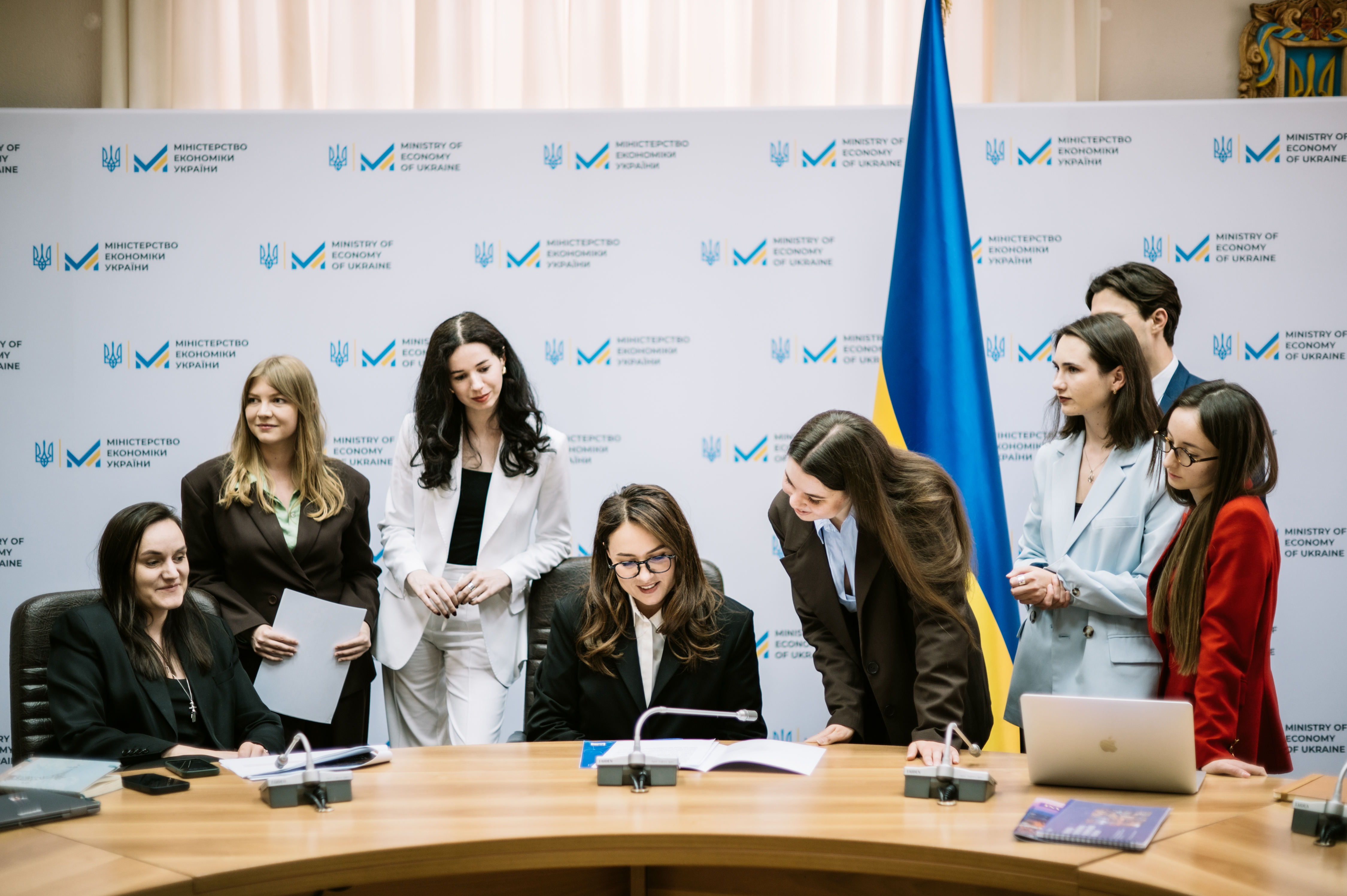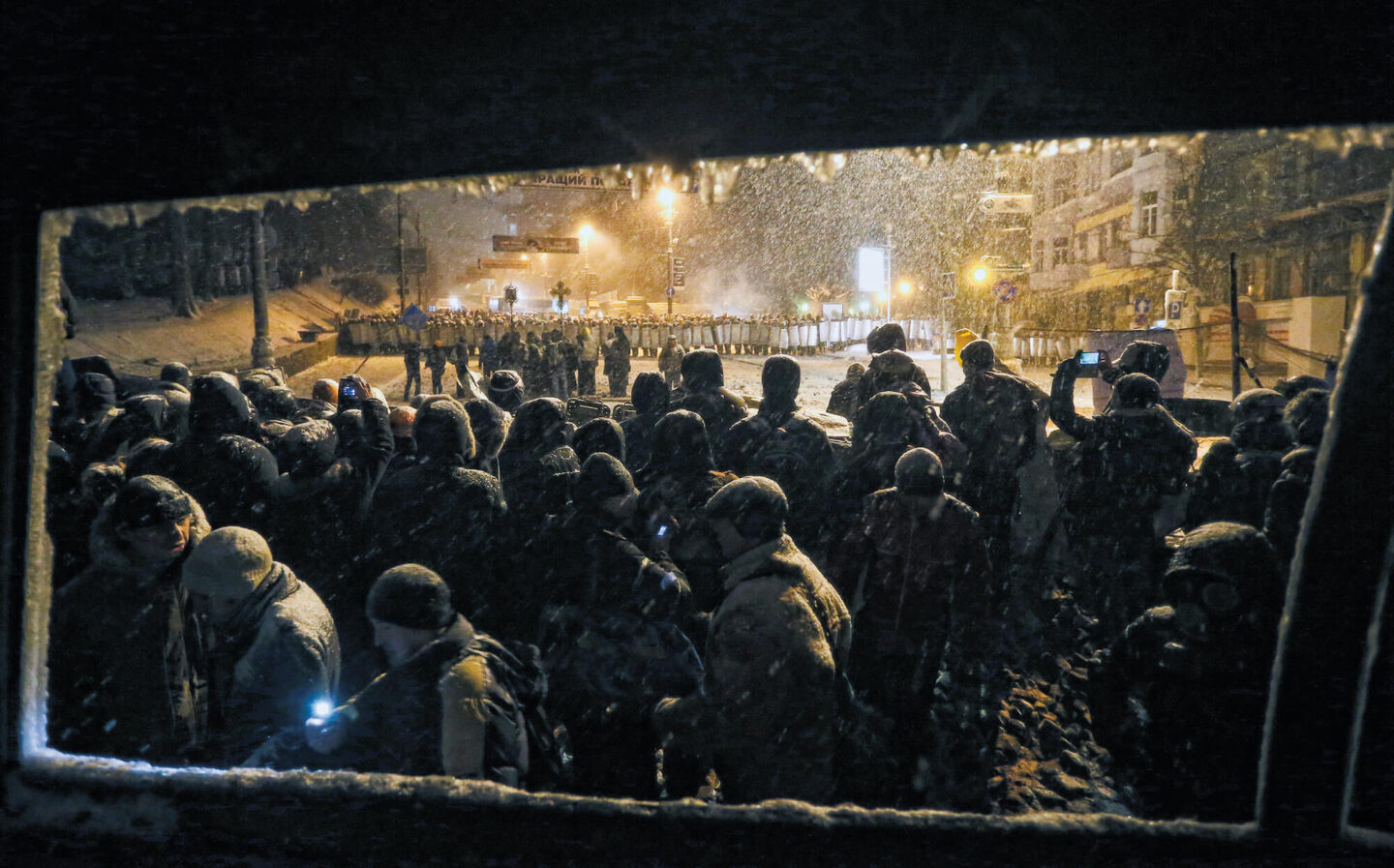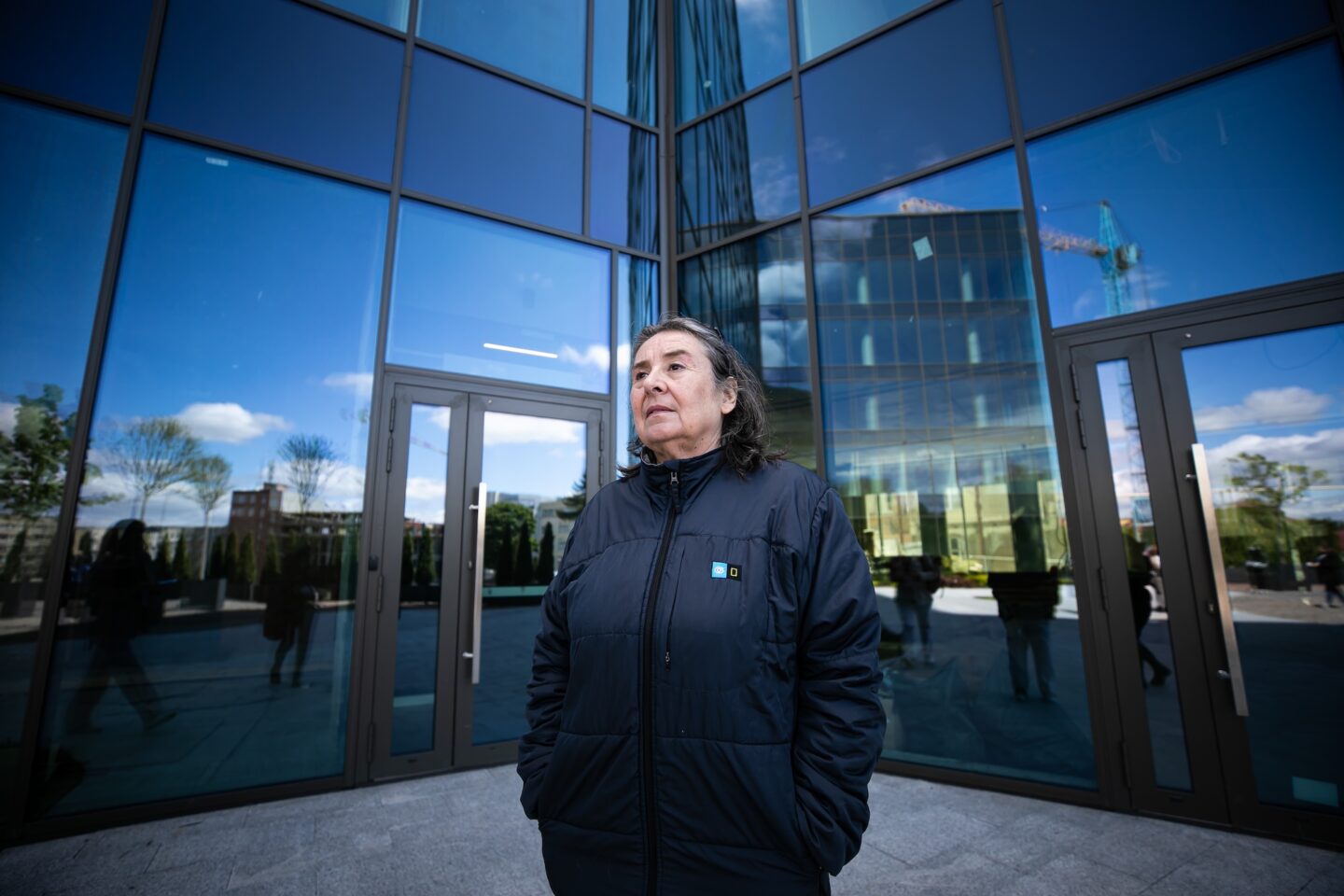As of April 2025, 7 million Ukrainians remained abroad. The issue of their return is both sensitive and complex: what could motivate Ukrainians — especially young people — to come back to a country at war? The answer proposed by the Ministry of Economy, Environment and Agriculture of Ukraine, the KSE Foundation and Lithuania’s Central Project Management Agency is this: opportunities to make real change.
The Ukrainians asked the co-creators of the Create Ukraine project what motivates young people to take the difficult path of becoming a kind of “medicine” for their country.
The Create Ukraine project was launched to encourage young Ukrainian professionals currently living abroad to their homeland. Its mission is to support the Government in advancing European integration, carrying out reforms and addressing the challenges of war. In 2025, Create Ukraine is scaling up, selecting 25 more young professionals to work in ministries and key state institutions. They will focus on EU integration reforms and projects. Applications are open until September 10, 2025.
§§§
[We created this story in partnership with the KSE Foundation.]
§§§
Yuliia Svyrydenko
Prime Minister of Ukraine
(at the time of the interview, she was serving as First Deputy Prime Minister of Ukraine and Minister of Economy of Ukraine)
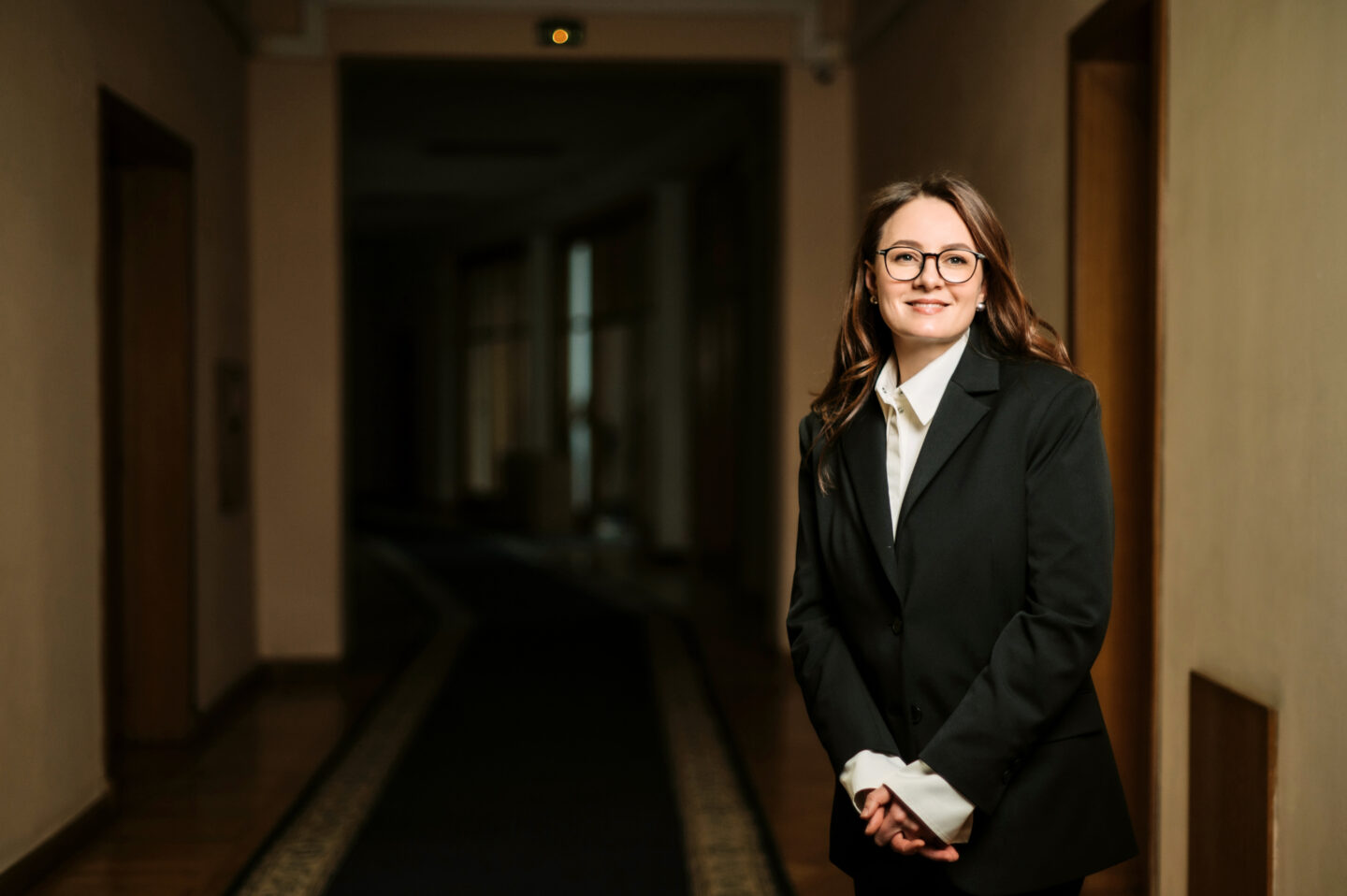
What should we offer young people to encourage them to return to Ukraine?
The Create Ukraine project is our first ambitious initiative to give young people who went abroad a real pathway to return home. The conditions were straightforward: come back to Ukraine for 10 months, study at one of the country’s top universities (including a government relations program at the KSE Business School), and gain a unique opportunity to work on strategic projects at the Ministry of Economy.
I clearly remember my first meeting with one of the program winners, who told me:
“I packed my whole life into two suitcases without hesitation and flew back home from another continent. Abroad, I felt I wasn’t doing enough for my country. I wanted to be here and to be part of big changes.”
For most participants, I believe this was the primary motivation — the desire to be a driving force for change.
How were participants selected, and what motivated them?
We had intense competition — seven applicants per place — with many talented and capable candidates, so choosing wasn’t easy. The selection was conducted by a special commission comprising representatives from the Ministry, the KSE Foundation and our partners. It was critically important for us to select individuals who are motivated, share our values and sincerely want to help the state.
We succeeded. For example, our team included Roman, who had lived in the U.S. since the age of 11 and worked at one of the largest Asian banks. However, he wanted to be genuinely helpful to Ukraine during the war, and he also wanted to learn Ukrainian well enough to use it beyond his home. When he arrived, he mostly spoke English. Now, his Ukrainian is excellent. Roman became an indispensable member of the team, contributing to the €200 million grant agreement between Ukraine and France, and, together with my deputy, Oleksii Sobolev, working on the U.S.–Ukraine Economic Partnership Agreement.
We need to show young Ukrainians abroad that they are needed here, at home. I hope that by working in the Ministry of Economy, they truly felt this.
What was it like working with these professionals in the Ministry of Economy?
They were — and remain — an integral part of the team. Some helped me with communications. For instance, Iryna Volokha organized an event in New York with UN diplomats and global stars to draw attention to humanitarian demining. Another participant, Tetiana Haidym, was responsible for organizing the Ukraine Recovery Conference and managing the business fair.
When I say they became part of the team, business trips illustrate it best. On a working trip to France, two participants of Create Ukraine joined us. They were present at all the negotiations, sitting beside me in meetings with ministers and business leaders. They prepared materials and built a networking base with French partners. In this way, participants truly work on the same level as department heads.
Do you cooperate with other ministries to implement the project?
We would like to expand the program to other ministries, allowing new participants to choose where they can be most useful. At URC2025, we announced the start of recruitment for the second wave of Create Ukraine. We are now looking for young professionals who, in addition to joining the Ministry of Economy, Environment and Agriculture, will also work with the Ministry for Development of Communities and Territorie, the Ministry of Foreign Affairs, the Ministry of Culture and Strategic Communications, Office of the Deputy Prime Minister for European and Euro-Atlantic Integration of Ukraine, and others.
What is the strategic need for such projects in the context of the war?
The return of Ukrainians from abroad is not just a humanitarian or social issue — it is a key strategic need for rebuilding our country.
Research shows that for effective recovery, in the coming years, we will need to attract an additional 4.5 million workers.
Projects that encourage Ukrainians to return are a means of introducing new knowledge and experience into the economy. Ukrainians who return home bring a new quality — to business, to education, to public administration. Their return presents an opportunity to build a new, modern Ukraine.
We are working on economic and social programs that stimulate Ukrainians to return. And just as importantly, we conduct information campaigns so that Ukrainians abroad know they are needed here and that we are waiting for them. So that they don’t think they’ve been forgotten or abandoned. We are waiting for every one of them.
How can the experience gained abroad be used for the benefit of Ukraine’s economy?
It is an enormous resource for Ukraine’s economy. It is not only about knowledge and language skills, but also about practical expertise, new approaches to work and an understanding of global trends and values. These young people, by returning, will introduce international standards into business, public service and education. They will create innovative startups and act as bridges for investment because they already understand both systems — Ukrainian and Western.
During wartime and in the post-war period, these individuals can become agents of change, leveraging their Ukrainian identity and global experience. That is why it is important to create conditions for their return and self-realization — through talent attraction policies, support for entrepreneurship, internships in the public sector, business creation programs, access to housing, education and retraining. All these tools are already in our arsenal.
Will such programs work only for young people, or can we also target more experienced professionals?
Of course, this is not only about young people. We received many applications from candidates over 36 who were very interested in working in the Ministry of Economy. For us, this is also a signal that the program should expand its eligibility.
Why did we choose young people for the pilot project? Because they adapt more easily to global changes. The pilot program proved highly effective. We are now working on scaling it up.
What lessons from this project can the state use to more systematically bring professionals back to Ukraine?
First, the recognition that many people want and are ready to return home. But they need practical tools: certainty that there is work, housing and resources for their return.
This process must be comprehensive. Beyond employment and access to mortgage lending, support for the return process is also important — covering travel costs to Ukraine and the first month of rent, if required.
The community is also vital. A special feature of this program is that all participants stay closely connected, providing psychological support to one another during difficult moments and adapting together to new circumstances. This community is an essential part of the journey.
In your opinion, what motivates young Ukrainians to return, given that the war and security threats continue?
Young people return not only out of patriotism but also because of their desire to be co-creators of long-term change. They are choosing meaning.
Their motivation is a mix of faith in the country, a sense of responsibility for its development, and the conviction that change happens not in words but in concrete actions — when you participate in making it happen.
Participants of Create Ukraine are motivated, ambitious and value-driven young people who see their involvement not as a one-off initiative but as an investment in the future. Their ideas, solutions and actions have a long-term horizon: they create projects that will continue to function long after the program ends, lay the foundations of new institutions and reshape approaches at both local and national levels. This is a generation that doesn’t just want to live in Ukraine, but to shape it actively.
§§§
Tetyana Berezhna
Acting Minister of Culture and Strategic Communications of Ukraine
(at the time of the interview, she served as Deputy Minister of Economy of Ukraine)
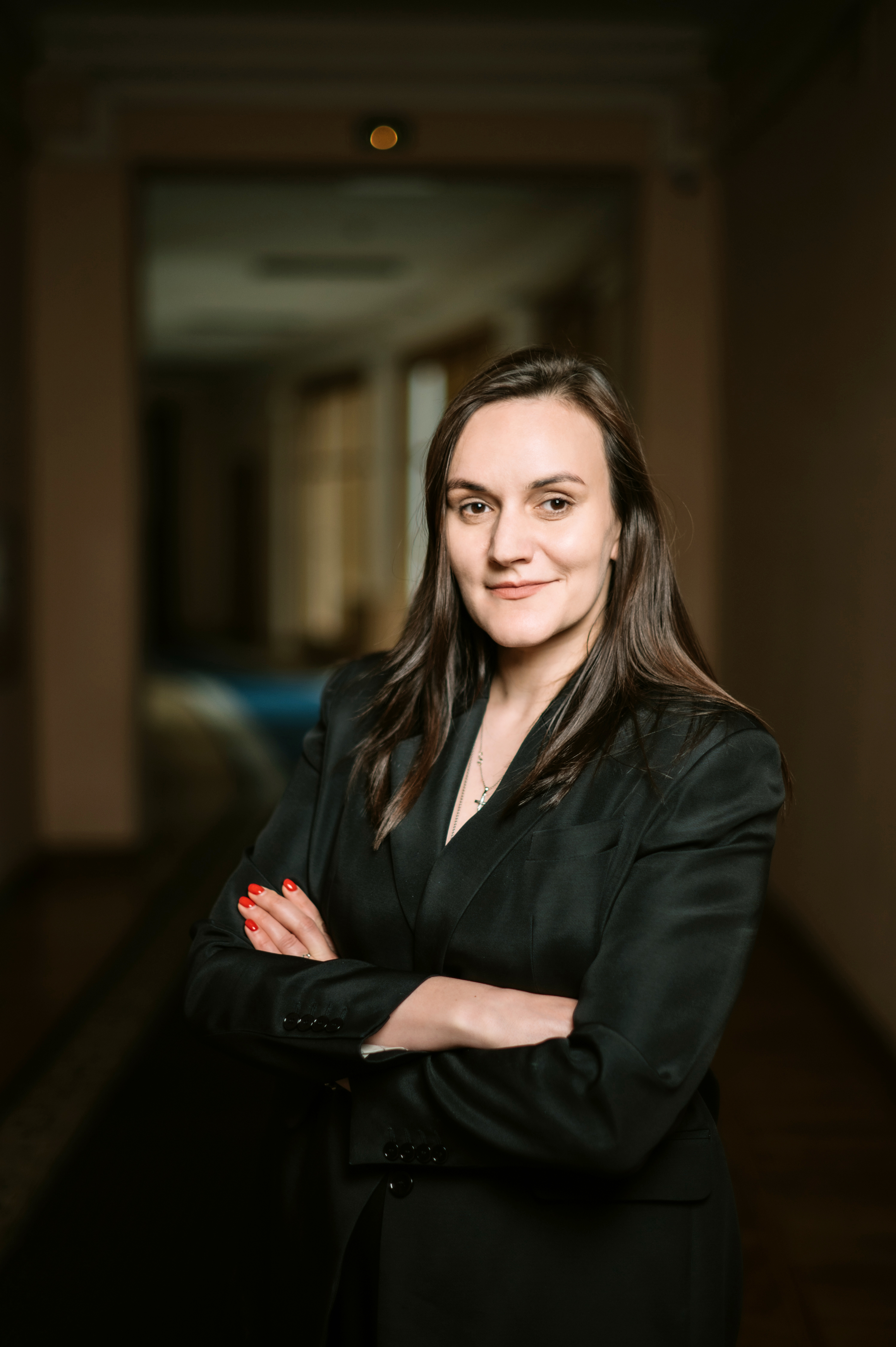
Were the chosen areas of work — such as new investments, the green economy, access to EU markets and the investor dashboard — an initiative of the Ministry, or were they proposed by the participants themselves?
Before launching the program, we described all the projects the Ministry of Economy was implementing, what specialists we had, and what they were working on. Accordingly, potential participants could understand what projects needed additional expertise. At the same time, the most interest was generated by the most relevant and urgent projects.
I personally conducted over 40 interviews, during which I explained the Ministry’s needs and the areas in which participants would work. For the most part, participants’ expectations and competencies aligned well with the Ministry’s requirements. For example, one participant, Yuliya Paska, is working on projects related to human capital, including the labor code act, which we have not been able to adopt since 1972. Once we succeed, it will be a significant achievement for the team. Another participant, Yuliia Mishchuk, works on strategic communications, coordinating projects carried out together with international partners. In particular, she is the lead coordinator from the Ministry of Economy for organizing Ukraine’s National Day at EXPO and the Economic Forum in Japan. Roksolana Smerechynska is working on Skills and SME Alliances, which enables us to coordinate donor support for Ukraine more effectively, as well as on training and retraining projects launched jointly with international partners.
Do participants maintain their enthusiasm, or do they face burnout?
I like the metaphor we once discussed with Lithuanian colleagues: when Lithuania created its program, participants were meant to become “vitamins” for the state, making everything function even better.
In our case, these young people are meant to be “painkillers” — saving the situation, putting out fires.
The young people we work with are deeply engaged in their tasks, where they feel important and needed. They have a strong desire to move forward with us, especially now that they have a better understanding of how the state machinery works, who is responsible for what, and whom they can turn to for assistance. We are already considering how to extend their contracts, which expire this August.
Mentorship and training require significant input from the mentor. How did your interaction with participants take place?
I am happy to have gone through the entire path — from the birth of the idea to joint work. Mentorship, for me, is a great privilege because it is a priceless opportunity to work with smart people, often smarter than yourself. I took participants to all the meetings I was invited to, including meetings with the European Commission, where participants had the chance to see how our legislation can be defended before the Commission. I tried to ensure their full immersion in our daily work. Of course, this required considerable time, but it provided the necessary understanding for high-quality results.
Do you see working with young people more as an investment in them, or as their contribution and perspective enriching the Ministry’s work?
It is important to ensure balance — that is essentially what it is all about. Because if someone is highly competent and ambitious but unwilling to take on the concrete tasks the Ministry needs, nothing will work. What matters most is the intersection between what a person wants and can do, and what the Ministry requires.
Fortunately, our experience has been entirely positive so far. This can be explained by the participants’ proactivity and motivation, as well as the specific nature of the Ministry of Economy. It is one of the largest ministries, with diverse projects spanning humanitarian demining, investment, trade, and the labor market. There are many areas where one can find their place.
What results of the project do you see so far?
I believe the most significant outcome is that every participant wants to remain in Ukraine. These young people are not deterred by the fact that the country is at war, because, as they put it, they have come to realize the difference between physical security and emotional security.
Are you truly in psychological safety when you know that fateful events shaping your country’s future are unfolding, that you could use your knowledge and experience to help your country, but you don’t?
One participant said that she had lived and worked in Lithuania, Poland and Canada for a long time. Still, at some point she realized she had done everything possible for her homeland from afar — and now wanted to return.
After the projects are completed, we plan further cooperation with these young professionals. We are very interested in having them remain in Ministry departments, perhaps in the Ministry’s project office or other state institutions.
What advice would you give to other public or non-governmental institutions ready to launch similar projects?
We work with young people, with an average age of 26. It is important to turn this into an advantage — to leverage not only their professional experience but also their different worldview in a way that benefits the organization or institution.
By the way, we have recently launched the second wave of the project, which will involve not 10 but 25 participants. We are now working on a broad information campaign to promote the continuation of the project so that more people learn about this opportunity. We have also given more time for applications, allowing participants to better reflect on the information about the second intake. Applications are open until September 10.
§§§
Svitlana Denysenko
Director of the KSE Foundation
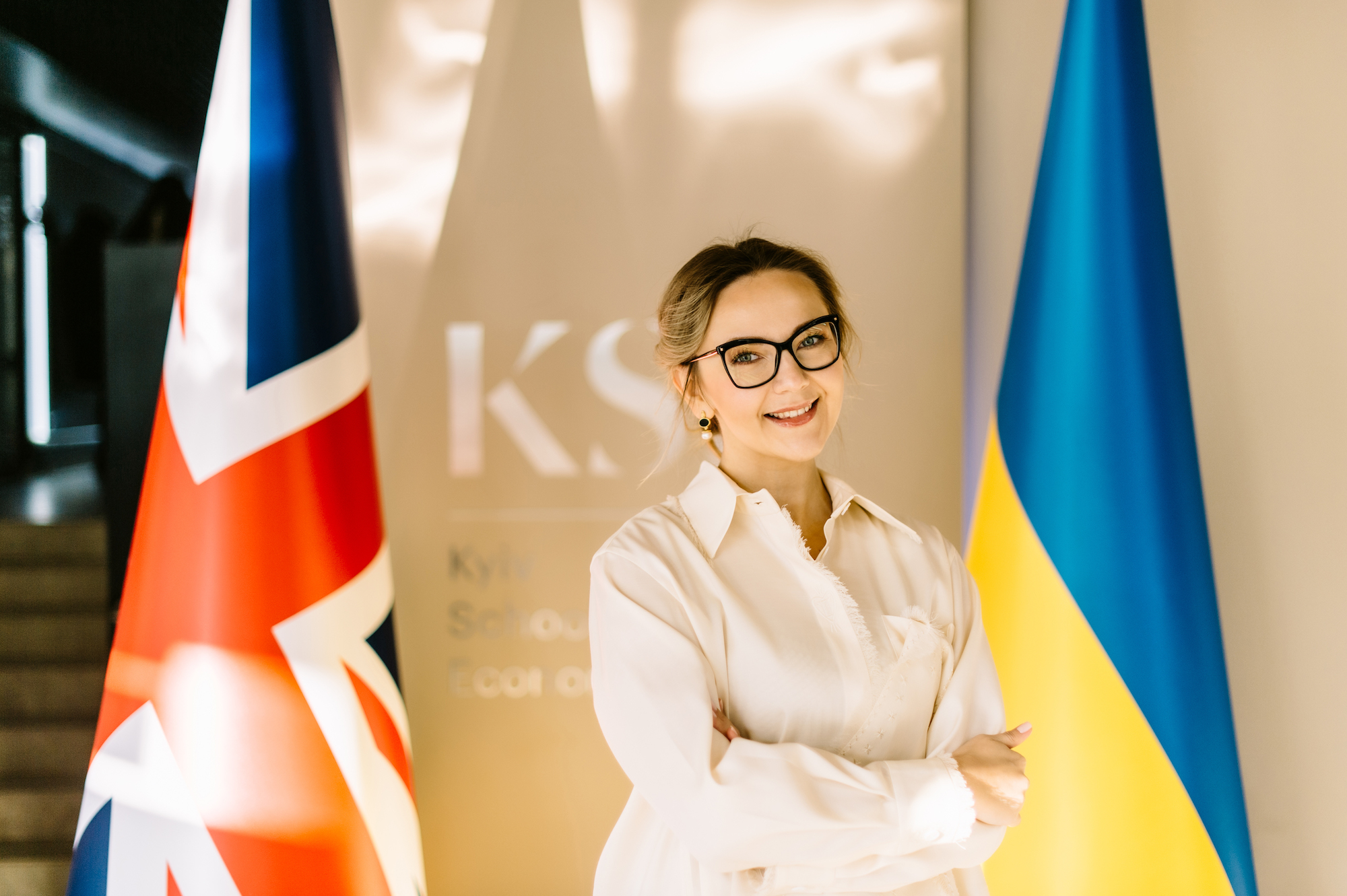
How did the idea for the Create Ukraine project come about? Where did it all start?
Two factors came together that I would like to see happen more often in Ukrainian civil society. First, an intense desire among Ukrainians to preserve and ensure the stable development of human capital (which is a core value for us). And second, the willingness of government structures to engage in such projects — to invest in young, educated people who want to be useful for Ukraine and in Ukraine.
The idea for the Create Ukraine project originated after we met with Tetyana Berezhna, Deputy Minister of Economy and Yuliia Svyrydenko, who, among other things, oversees labor relations and human capital development. She shared an idea that had arisen during the Ukraine Recovery Conference. At this conference, she met colleagues from Lithuania who shared their experience with a project similar to hers, which has been running since 2012 under the name Create Lithuania.
At that point, we realized we could join forces to launch an even bolder project.
While our colleagues were simply returning youth to Lithuania, our task was to bring people back to a country that was in a full-scale war.
And all of this happened at a time when the media constantly predicted new military actions and blackouts. However, the support of Tetyana Berezhna and Yuliia Svyrydenko was crucial in the early stages of the project, as it helped to instill confidence that it could happen.
Did you encounter any difficulties during the implementation of the project?
We thought the most challenging part would be attracting participants, but in the end, we received dozens of applications. And when we began interviewing young people, we realized how eager they were to return to Ukraine and find a place where they could personally contribute to their country’s well-being. Naturally, this was incredibly inspiring for us and the team at the Ministry of Economy.
Regarding difficulties, it was challenging to reconcile the drive of young people who had studied abroad, attended top universities and adopted the best global practices — wanting to implement their ideas — with a bureaucratic state mechanism that has countless rules and procedures. It is often quite slow, but no less logical or valuable.
Everyone needs to understand that an idea you have today cannot change the world tomorrow.
Therefore, for us, it was essential not to undervalue the culture of ministry professionals who have been working for many years and know how to implement any initiative so that it survives properly. At the same time, it was important to introduce fresh perspectives from young specialists, often without experience in public administration but with a strong desire to effect change.
Tell us about the infrastructure created to support and train participants.
It was necessary to provide participants with tools to enable them to implement their projects as effectively as possible. First, they completed the certification program “Government Relations Specialist (GR)” from the Center of Excellence in Government Relations at KSE. As part of this program, they interacted with top officials and experts about how real policy works, lobbying, etc. We tried to select speakers with as diverse experiences as possible. Second, we offered them a course on artificial intelligence for project managers, as these skills are essential in the digital era. Third, young people received mentoring support and had the opportunity to discuss various issues directly with mentors, including the Deputy Governor of the NBU, Sergiy Nikolaychuk and former President Viktor Yushchenko.
Of course, we ensured that they had access to sessions with a psychologist. Participants in the Create Ukraine initiative returned from countries without war, where no missiles or drones are flying — it was essential to provide them with such support, as not everyone can cope with the reality in Ukraine on their own, and this is natural.
What are the project’s goals and implementation stages?
It is very important that this project, initially considered a pilot, becomes a foundation for a long-term, systematic initiative. We want to scale it up and return talented Ukrainians to the state who want to contribute to its development. First and foremost, we aimed to build an adaptation infrastructure that would support this process and enable participants to work effectively on projects.
Regarding the implementation stages, it is straitforward: first, there is a competitive selection (application submission, interviews, invitation to participate in the program); then, familiarization with supervisors, after which participants present their ideas and together determine the direction and format of the project. Next comes the implementation stage, and finally, the presentation of results and achievements. Grant providers, ministry colleagues and partners from Lithuania approve the key project KPIs. The most important criterion is that participants’ work has a real impact on policy and reform development that can be implemented. And of course, we would very much like these people to remain in the current of national-level state change. It is necessary that people not only stay in Ukraine but also become permanent employees of ministries, remain in patronage services and become civil servants.
How do participants explain their motivation for taking part in this project?
Almost all of them pointed out that they gained valuable experience abroad, which they now want to give back to the state at such a critical time. Their motivation is very high, as these young people left promising jobs and career tracks to come here and help the state. It sounds lofty, but in reality, that is the case. I hope that the state will also inspire them.
They have excellent relationships with deputy ministers who serve as their mentors. I very much hope that the teams will come together, and in a few years, we may know new deputy ministers, department heads, or even ministers who began their journey with Create Ukraine.
§§§
Dalia Krapavickaitė
Project Manager at Central Project Management Agency, graduate of Create Lithuania
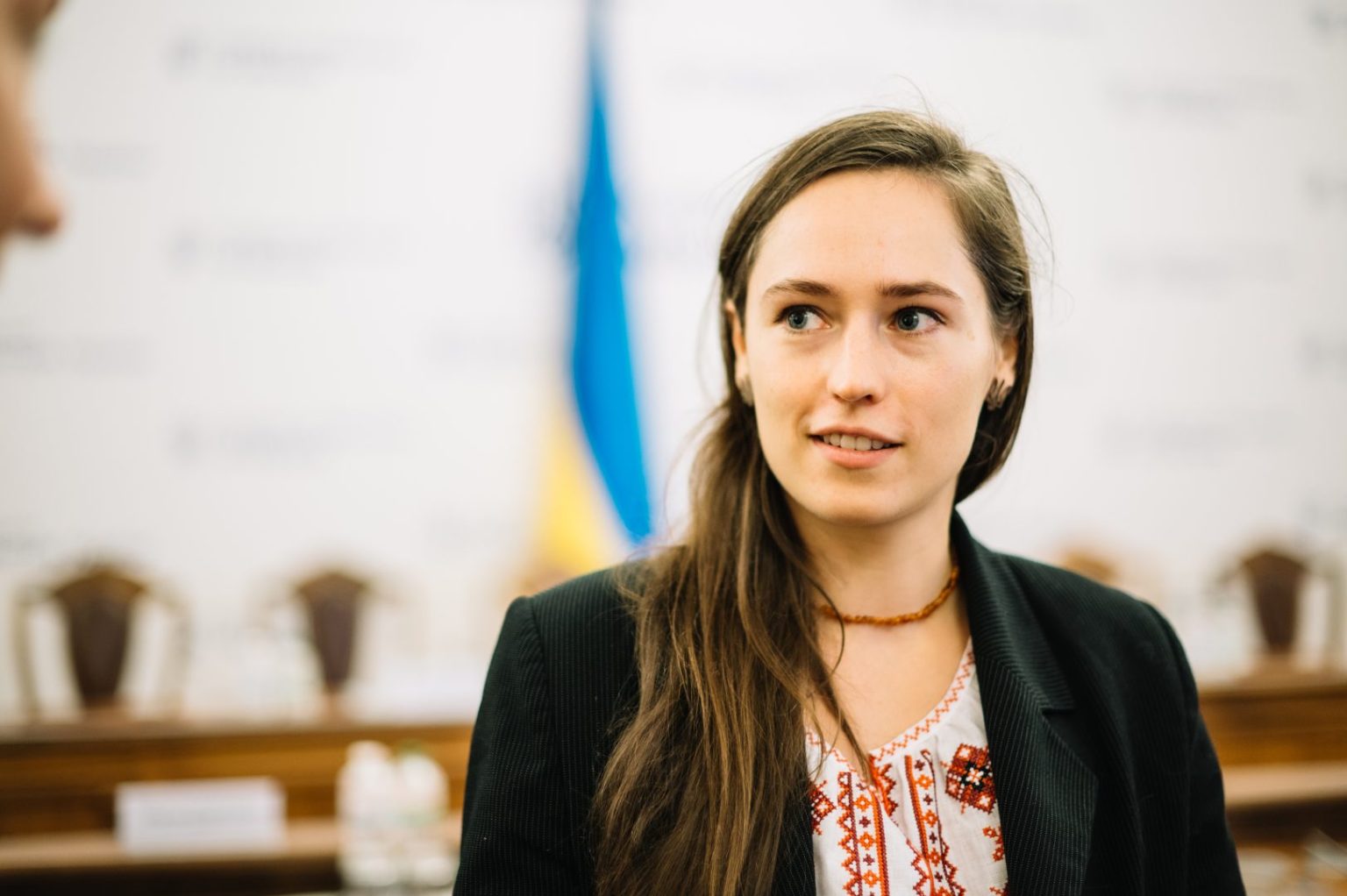
Could you tell us about the history of the Create Lithuania project? How long has it been running?
The Create Lithuania program was created to engage people who left Lithuania after it became part of the European Union. Many left at that time because of the opportunities offered by open borders.
From the very beginning, the program focused not only on bringing professionals back from abroad but also on involving them in the Lithuanian public sector, where they could apply the best global practices to foster innovation and improvement.
As young professionals, these individuals worked for a year in various institutions, focusing on topics chosen jointly with those institutions according to their needs and priorities, improving the functioning of specific sectors and becoming experts themselves. This often led to better communication and cooperation between institutions, and new practices, including project-based management in the public sector. Program participants also assisted long-standing public sector professionals by offering solutions to problems that had previously been overlooked or lacked sufficient human resources. Their success was often rooted in bringing stakeholders that have not been previously cooperating together, and facilitating the search for solutions.
The Create Lithuania program has been running for 14 years. It has become a trusted brand not only in the public sector but also among businesses and NGOs.
What impact have you achieved in Lithuania?
Each project has its theme and goals. Some can be technical — such as researching problem areas in public procurement, monitoring and evaluating the social responsibility of state-owned companies — while others are very practical, such as amending debt legislation, implementing a mailbox system to combat bullying in schools, or a system for collecting plastic bottles and cans. But every project leaves its mark, documents processes and brings together local stakeholders to create new partnership models.
Even in cases when a project is not a priority politically and does not become reality in the one year a participant has, the proposed ideas are left in documents. Those documents are usually picked up sooner or later by other, new leaders or politicians, and used as the basis for moving forward with the issue.
What impact do you hope to achieve in Ukraine? Considering the different contexts of the two countries, how do the programs implemented in Lithuania differ from those currently running in Ukraine?
Obviously, the model is taking shape, and we are steering it toward European accession, where much needs to be done, not only from a legal perspective but also from a practical one.
In Ukraine, a lot is being built from scratch, so we see in Create Ukraine participants those who can analyze problem areas, propose solutions and initial steps, unite stakeholders for joint work, create platforms for decision-making. They also share their knowledge about how similar processes are carried out in other countries. When it comes to inter-institutional cooperation, we believe that Create Ukraine can achieve the same effect as Create Lithuania.
We also observe that while in Lithuania it was possible to have participants focus on one single topic for 6 months in one institution, and 6 more in another institution with another project, for Ukraine this does not fit. We see that the pace at which Ukraine is moving is faster and the demand for public sector to deliver is high, so it also requires Create Ukraine participants to be flexible: they cannot focus on one project only, but they start helping in places where the leadership of institution sees gaps.
Create Ukraine is in the making and it is defined by the people that take part in it: not only management, but participants and institutions, as well as other stakeholders in the country. We will continue to closely observe Ukraine’s EU accession progress and trajectory, consult all of those involved, and refine the model that would make Ukrainians proud the way Create Lithuania makes Lithuanians proud.
In your opinion, does Ukraine have the potential to attract its specialists back from abroad, and what should be the focus to make this happen?
Recent research shows that the primary need for those who left Ukraine is employment. Second comes safety for themselves and their families. We see many Ukrainians tirelessly working for their country and creating opportunities. Supportive environment for them in Ukraine can motivate these people to return. So the potential is evident, but every person needs to see a clear pathway on what awaits for them once they return.
At the same time, it is important not to lose contact with Ukrainians abroad, as their distance does not mean indifference. Many are willing to support the country in ways accessible to them, and involving diaspora is also an important tool for country’s development.
You can learn more about the Lithuanian program here.
Applications for the Create Ukraine program can be submitted here.
§§§
Create Ukraine is co-funded by the European Union and the Government of Lithuania within the framework of the EU4Youth program, aimed at supporting young people. The project is managed by the Lithuanian organization Central Project Management Agency and implemented by the KSE Foundation at the Ministry of Economy, Environment and Agriculture of Ukraine.
This material has been prepared with the financial support of the European Union. The contents of this video are the sole responsibility of the Ministry of Economy, Environment and Agriculture of Ukraine and the KSE Foundation and under no circumstances can be regarded as reflecting the position of the European Union.

